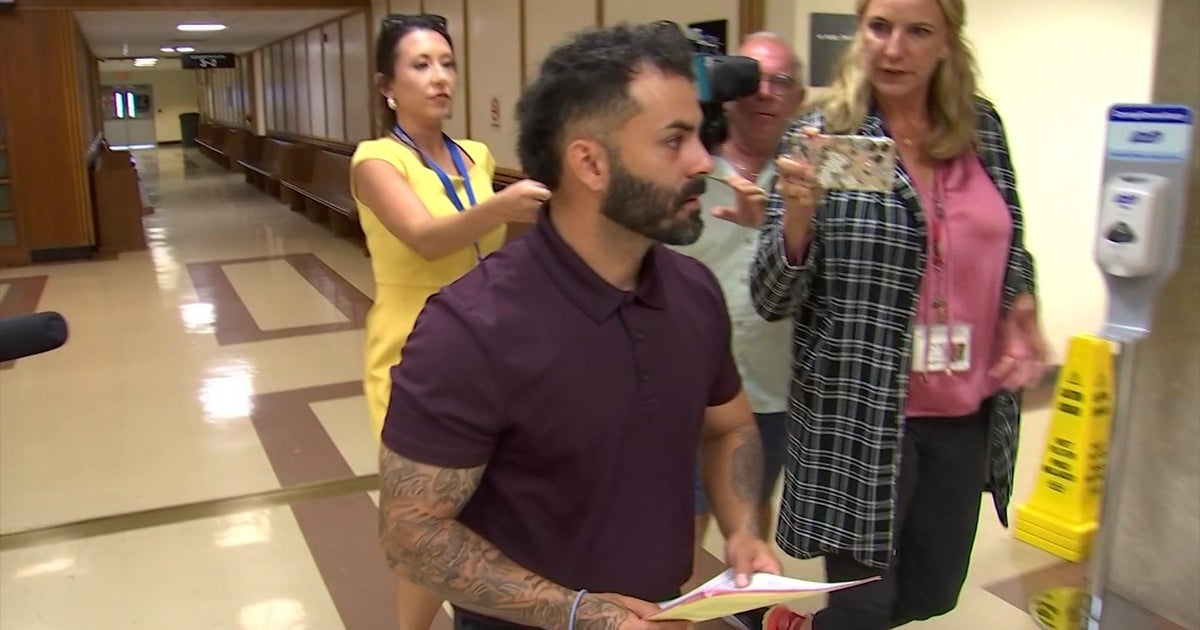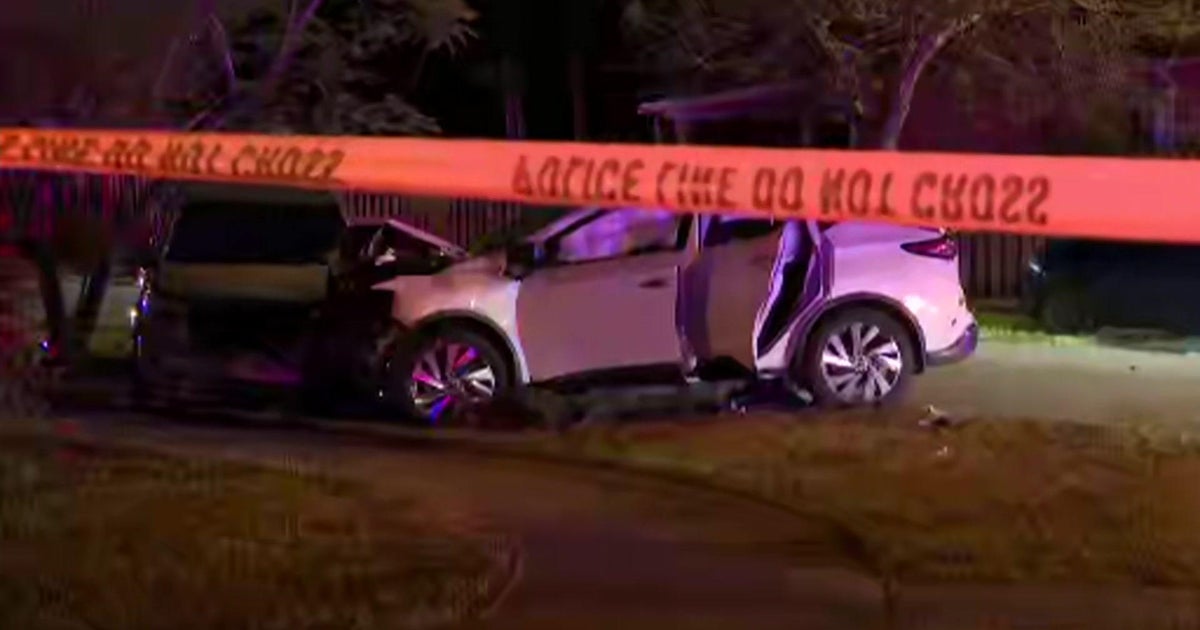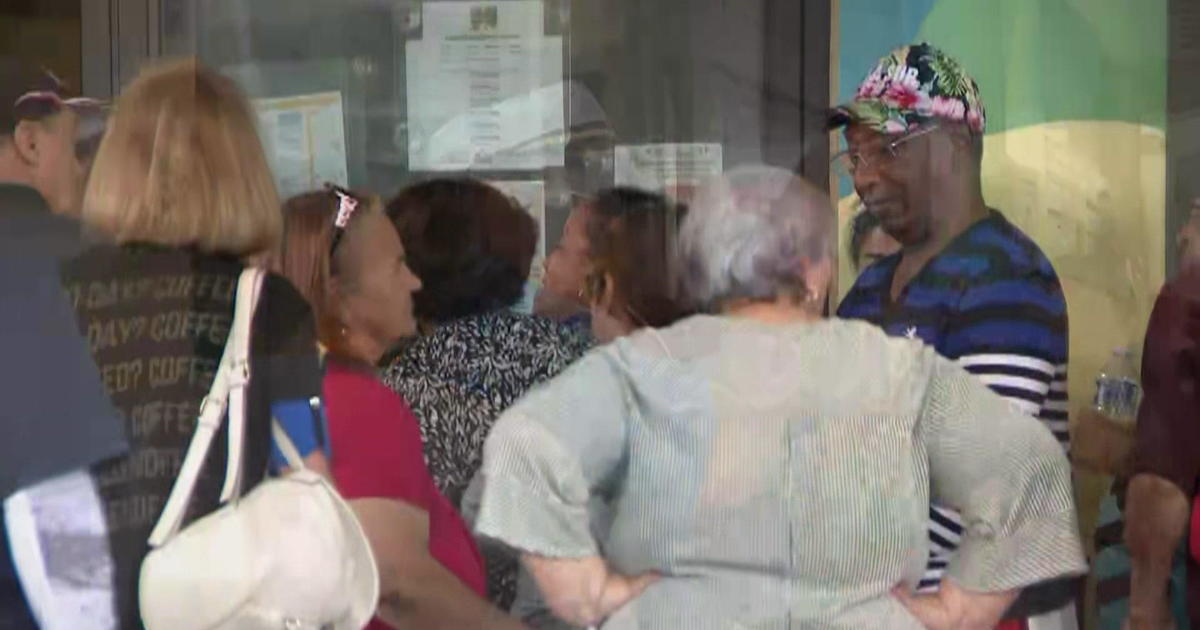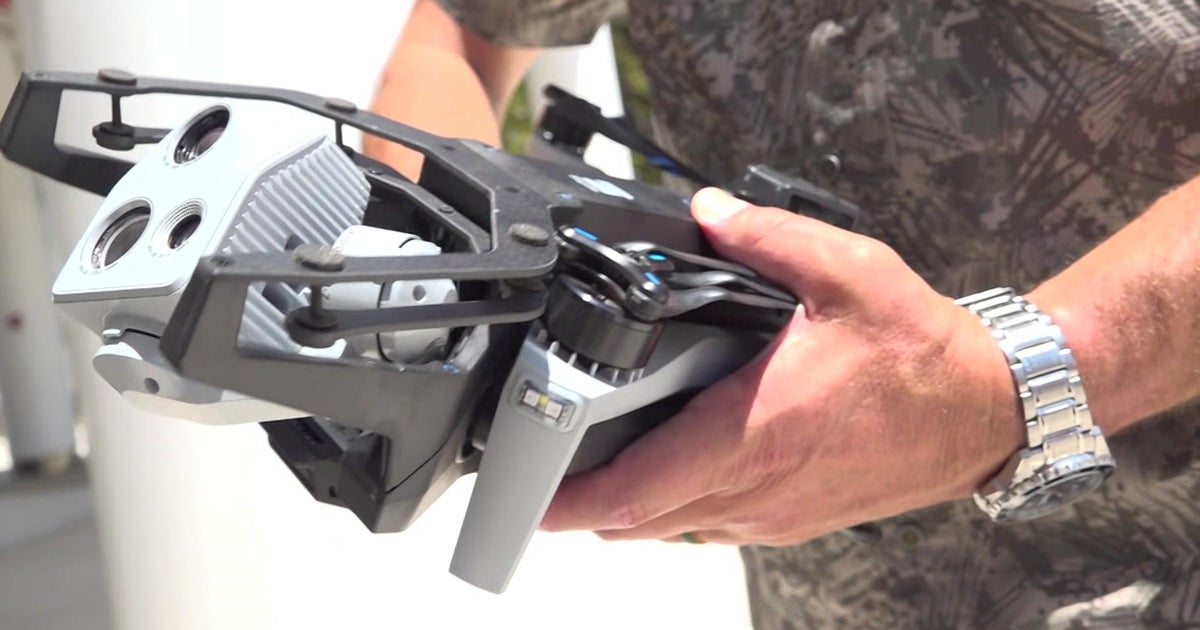Gun Violence The Norm For Some South Florida Students
MIAMI (CBS4) - Booker T. Washington High School is surrounded by violence.
In the past year alone there have been more than 40 people shot within ten blocks of the Overtown school. Among the victims: 15-year-old freshman Aaron Willis who was paralyzed by gunfire while riding his bike and 17-year-old sophomore Juan Videa who was shot in the stomach waiting for his school bus.
Few schools have the challenges facing the students of Booker T and its principal William Aristide. Located in one of the poorest neighborhoods in the country, more than 90 percent of Booker T's students receive free or reduced lunches. Nearly three dozen students are homeless.
"Many times these kids come from environments where they really don't even have the means to make it, you know, in terms of every day survival," said Aristide, who has been a principal at the school for three years. "And now on top of that they have to deal with injuries, lasting injuries, lifelong injuries.
But it is the neighborhood violence that looms over this school like the nearby highway overpasses.
"Life is hard period. Ain't nothing going to come to you easy," said junior Treon Harris.
Harris learned that lesson before he ever arrived at Booker T. In 2009, just weeks before he started school, Harris was in the midst of the worst mass shooting in Miami's history in which twelve people were shot and two were killed.
"I just dove between two cars," Harris recalled.
Among the dead: Anthony Smith a star linebacker on Booker T's football team.
It is the impact that all of these shootings have on the other students that drew CBS4 News to Booker T to ask a very simple question: When you are surrounded by violence your entire life, when friends and classmates are shot, what effect does it have on you?
"It's just a way of life," shrugged Michael Thomas, a graduating senior.
Thomas grew up in Overtown and knows its reputation.
"Yeah it was tough, you know, but only the tough survive, you get through it," he said. "It ain't nothing."
That attitude is everywhere. Ask nearly any student if they know someone who's been shot, and they'll rattle off a list of people with little emotion.
"One of my friends Bobby, he got shot about 12 times, he was in ICU about a month," noted senior Chevon Williams. "One of my friends Terrell got shot. One of my friends Dontrelle got shot. He actually died."
Williams was eleven the first time he saw a person gunned down in the street.
"I lived across the street from the Pork and Beans," he said, referring to the housing project. "There were a lot of feuds, a lot of gang wars, and this guy was just walking and BAM they shot him.
"It's a shocking feeling at first, you see the body drop, somebody got shot, your like, Oh my God, I hope that's not me, I hope that's not going to be me next. But after awhile you start to get comfortable. You get used to the gunshots. You get used to the violence and it just doesn't affect you as much."
Senior Melissa Wilson recalls one of her middle school classmates being shot.
"It was sad, but, I mean, things happen," she said. "It was sad, it was unfortunate, but it happened."
CBS4 News visited the freshman classroom of Aaron Willis, who was shot and paralyzed. When asked how many of the students in the class knew someone other than their classmate who had been shot, nearly everyone in the class raised their hands.
For teacher Michael Velez the violence his students' witness – and how they handle it – is disturbing.
"Really one of the things that is sort of shocking that you will see in this school and perhaps not in others is that they are used to [the violence]," he said. "And that's really troubling, it's saddening to see that because they should be more shocked, they should be more outraged, they should be doing more to defend their community. And it is just something routine for them and it's very sad. They'll accept that as normal."
Velez, who spent three years serving in Iraq and nine months in Afghanistan, compared the students' attitudes to his time in a war zone.
Click here to read Jim DeFede's investigation into how students cope with learning in a war zone.
"These students, in the ninth grade look like soldiers that had been deployed in the worst years of Iraq; that had been there three or four times already," Velez said. "And that shouldn't be. A student in the ninth grade should not be used to or accustomed to violence of that level."
On one of the days CBS4 News was filming at Booker T, gunfire erupted a few blocks from the school. A 25-year-old on a bicycle was shot and killed.
Mayhem ensued as family members rushed to see the bloody remains. And all around the crime scene – children. Their young eyes ever watchful they take in every moment. Even after the body is removed and the yellow tape comes down - the stain of blood remains a curiosity for some and a playground for others.
"When you look at the staunch level of poverty that a lot of these kids come from, when you look at some of the violence in the community, you have to question why more of these kids are not acting out or having many other issues," said Aristide.
Aristide is amazed at how many of these kids are able to not just survive but in many cases thrive.
"They learn survival skills at a very young age," he noted.
Aristide said despite the challenges they face - or maybe because of them - his kids are motivated to graduate and get out.
"The mere fact that they can still come to school, they can still learn, they can still graduate, they can still go and their internal fortitude to be successful and make those smart decisions," he said.
Few at the school know it as well as Treon Harris.
"I got a cousin that had been shot, killed; an uncle who had been shot and killed; friends who have been shot before," he said casually. "Even some of my little friends who have come to Booker T got shot over nothing."
And in September his mother was shot as she sat in the stands during the opening of Gibson Park - which is right next to the school.
"It affected me in a bad way but I had to stay focused because I don't want to get shot, I don't want to be in the neighborhood sitting around, doing nothing and end up like the guys who get shot," he said.
Aristide knows the violence must take its toll.
"Their lives are not the same," he said. "To go through the experience of one being shot or two experiencing a friend or family member whose been shot, it affects you one way or another. I just don't want it to come to a point where everybody accepts this as normal, because its not normal. It's not normal."



